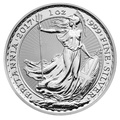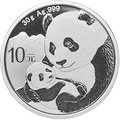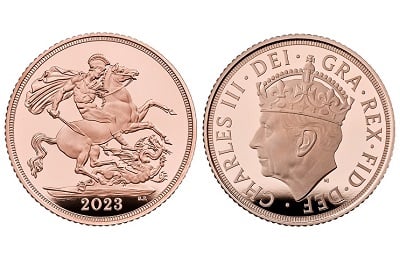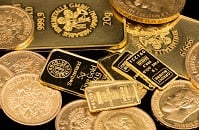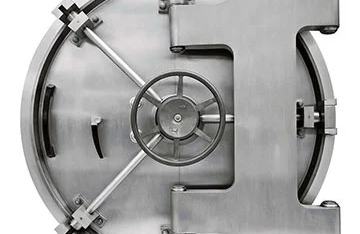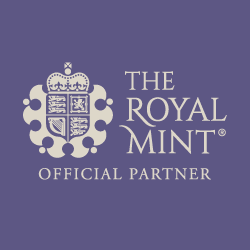Uses of silver
Silver is not just a popular metal for bullion investment, it is also one of the most useful metals in human history and in the world today. It is the numerous uses of silver that keep its demand high, and with electronics only becoming more integral to everyday life silver uses could help see its demand grow even higher.
As the best thermal and electrical conductor of all metals, silver is used in a vast number of industrial, technological and medical/hygiene products. Similar to gold, silver is ductile and malleable, allowing it to be easily shaped without damaging the metal. As silver is much more common than gold, it enjoys far lower prices, despite being as useful – if not more so.
The demand for silver is growing thanks to its impressive variety of uses, with prices expected to rise in response.
What is silver used for?
As mentioned above, silver is used for a lot of different applications. One of the main things silver is used for however is electronics. As the best electrical conductor silver is used in circuit boards, providing great connectors that can be very thin and won't corrode over time.
Historically, silver has been mined for thousands of years and has been a popular choice for circulating coinage. Gold was traditionally used for high value coins, with silver’s lower value being perfect for smaller denominations. As science progressed though, the uses of silver have become much more varied. Below are just some of the ways that silver is used today:
- Jewellery
One of the oldest uses for silver is jewellery and decorative items. Rings, necklaces, bracelets; humans have adorned themselves with silver for millennia. Silver has also been the benchmark of fine dining for centuries; the high quality but lower cost making it the ideal choice for luxurious tableware over gold.
- Bullion
Silver coins and bars are still produced regularly by refiners and mints globally. Investors looking to protect their wealth, and potentially make money, treasure silver as a safe investment with a lower entry cost compared to other precious metals.
- Mirrors
Silver has a very high reflectivity of light when polished, making it useful for mirrors and related products. The panel of glass used in mirrors is covered with a thin layer of silver to give it the reflectivity desired. Windows are also covered with silver in order to reflect sunlight, protecting those inside from some of the sun’s UV light.
- Cameras
Older analogue cameras would often use silver in their lenses; the reactivity of silver being perfect for the light sensitive nature of photography. The film used in these cameras was also treated with a silver based solution, leaving an after-image that's ready for development once it is exposed to light.
- Electronics
The number of applications for silver amongst electronics are too numerous to list. As the best electrical conductor, silver is used somewhere in almost all electrical items. Switches, for example, are often thin plates of silver and whether for power or light switches, silver ensures a connector works. LED chips and touch-sensitive screens mean that the mobile phones we use so regularly are also filled with silver.
- Energy
As the world looks to utilise the natural resources we have for sustainable energy, silver has seen a growing demand for use in photovoltaic cells in solar panels. With governments across the world declaring climate emergencies, and setting targets to reduce carbon emissions, the solar energy industry is set to grow considerably over the coming years.
Even nuclear energy uses silver; control rods used to regulate the fission reaction in a nuclear power plant are regularly made of an alloy containing 80% silver.
- Engines
Ball bearings – electroplated with silver – play a key role in many engines; from cars, to the jet engines on planes. With a high melting point, silver can withstand the high temperatures that are produced by the friction of these intense machines.
- Medicine
Silver is non-toxic to humans but is antimicrobial and antibacterial, giving it a number of medical applications. Silver is used in the antiperspirants we spray every day in the pursuit of cleanliness, as well as being used in the fight against the growing tide of superbugs resistant to traditional antibiotics in hospitals.
- Novelty Explosives
Every year on Christmas Day people around the world enjoy small explosions of silver in the form of crackers. The small strip of cardboard inside a Christmas cracker is covered with silver fulminate; when friction is applied this ignites, causing the small explosive crack. Only very small amounts of silver fulminate are used however, but given the amount of crackers made this figure becomes quite sizeable.
- Cloud Seeding
Silver is even used for cloud seeding. This technique is a form of weather ‘control’, although stimulation may perhaps be more accurate. Silver-Iodide is dispersed into clouds, encouraging freezing nucleation and increasing precipitation. In areas where rainfall is low, this is intended to help encourage more rain or snow to fall. The technique however is new, and opinions are divided on how effective it really is.
Every year technology pushes on and more often than not, finds new uses for silver. Even after being treasured for thousands of years silver remains a key part of human life, with many of us using or carrying silver around without even thinking about it.
- How To Buy Gold
- How to Buy?
- Payment Options
- Delivery Options
- Gold Storage
- Storage at Brink's
- Gold Investment Guide
- Why buy gold?
- Is gold a good investment?
- Why physical gold?
- Best time to buy gold?
- Gold bars vs coins?
- Gold vs Silver
- Gold - Silver Ratio explained
- VAT on bullion
- CGT on bullion
- Legal tender coins
- Top 5 Gold Investments
- Top 5 Silver Investments
- Gold vs ISAs
- Gold vs Buy-to-Let
- Gold vs FTSE 100
- Gold vs Bitcoin
- Where to buy gold?
- Why buy from us?
- Where to sell gold?
- Coin Shops
- Gold Price Forecasts
- Top 10 Gold Producers
- Top 10 Gold Reserves
- Gold Britannia vs Sovereign
- Britannia coin designs
- Sovereign coin designs
- Sovereign Mintages
- Sovereign mint marks
- British coin specs
- What is a proof coin?
- Royal Mint bullion
- The Queen's Beasts
- Royal Mint Lunar Coins
- Bullion Refiners
- British coin mints
- Krugerrands
- Gold Tola - India & Pakistan
- Bullion Index
